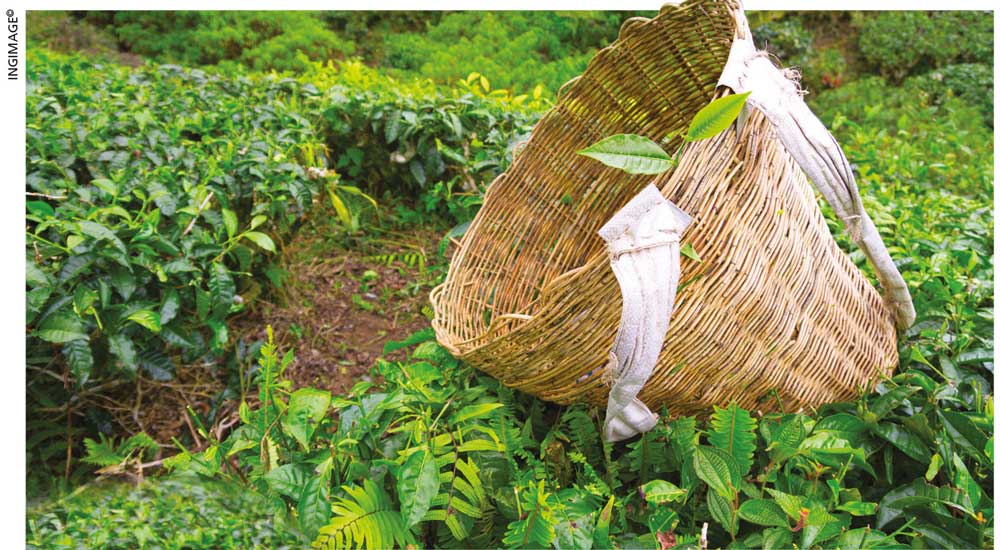PLANTATION SECTOR
FAR CRY FROM LABOUR RIGHTS
The plantations are failing to uphold the rights of workers – Janaka Perera

Since 1 May was designated International Workers’ Day by a global federation of socialist groups and trade unions in 1889 following labour unrest and violence in the US, there have been many developments worldwide relating to labour issues.
Today, core labour standards include freedom to form and join a trade union, and collectively bargain; freedom from all forms of forced labour including slavery and working under duress; freedom from child labour and implementation of a minimum working age; and freedom from discrimination in employment – equal pay for equal work.
However, very few member states of the ILO have ratified all of the UN agency’s eight core conventions relating to such labour standards due to domestic constraints.
Yet, and as these standards are recognised in the Universal Declaration of Human Rights (UDHR) and form part of customary international law, members are committed to respecting them.
Even before the COVID-19 pandemic, Sri Lanka’s apparel workers didn’t benefit from a fast-growing industry despite its contribution to the economy.
Instead, they endured physical abuse, inadequate wages and poor working conditions. Women operating sewing machines in apparel factories were stigmatised and considered promiscuous, and derogatorily called ‘Juki girls.’
Safety concerns, and exposure to sexual harassment and abuse, have prevented many young women from entering the industry. To achieve full and productive employment, as well as decent work for all employees, the protection of their labour rights, and the promotion of safe and secure working conditions are critical.
Sri Lanka’s plantation workers of Indian origin have faced a legacy of exploitation since British colonial times. They remain at the bottom of societal ranks despite being granted citizenship in the 1980s.
And even after living in this country for more than 150 years, that plantation community continues to be among the most marginalised and impoverished workers in Sri Lanka.
The Rainforest Alliance and Fairtrade Foundation investigated tea plantations in the Nuwara Eliya District, for abusing workers’ labour rights and breaching ethical label standards. They say that if plantations are found to be in violation of these ethical labels’ standards, their certification will be suspended or cancelled.
This follows revelations by the Thomson Reuters Foundation (TRF) that plantation workers’ wages were deducted without their consent – and 65 percent of these wages were taken from workers at Rainforest Alliance certified estates.
TRF investigated tea estates across the Central Province and examined 17 workers’ payslips from nine Rainforest Alliance certified tea estates, six of which were also ratified by the Fairtrade Foundation.
Estate managers and workers informed TRF that quota policies were implemented across the tea estates, sanctioning workers by halving daily wages when they picked less than 18 kilogrammes a day or arrived 15 minutes late – these deductions are in direct violation of labour laws.
Tea giants Unilever and Tetley (owned by Tata Global Beverages) initiated inquiries to follow up on these findings. Transparency in these two businesses’ supply chains improved after their suppliers were made public following the Traidcraft Exchange campaign ‘Who picked my tea?’
A spokesperson for the NGO asserted: “The Rainforest Alliance is continuously working to improve its certification programme. We have recently taken steps to increase the assurance mechanisms of audits including increased and regular unannounced audits. We are currently developing a new certification programme and standard (following our recent merger with UTZ), which will be published later this year.”
Plantations-based Ceylon Workers Congress (CWC) held a protest and blocked the transport of finished tea products at 14 estates owned by an upcountry plantations enterprise to demand that workers be paid their daily wage of Rs. 1,000.
The daily target for tea leaf plucking has been increased to 20 kilogrammes for each worker, which is up from 16 kilogrammes; and daily land clearing targets increased from 75 to 150 square metres. If workers don’t meet the new targets, their wages are cut.
Sri Lanka’s surging cost of living and low wages have severely impacted plantation workers, who are among the country’s poorest workforces. With inflation and food prices continuing to rise, a daily wage of a meagre 1,000 rupees is utterly inadequate. Plantation workers need a monthly wage of at least Rs. 75,000 to be able to lead decent lives.
The opposition in parliament is critical of the government on issues around the Employees’ Provident Fund (EPF) and Employees’ Trust Fund (ETF) in the context of the domestic debt restructuring programme. On the hand, the government has assured nine percent interest on EPF bonds in line with the average interest paid in the past.



